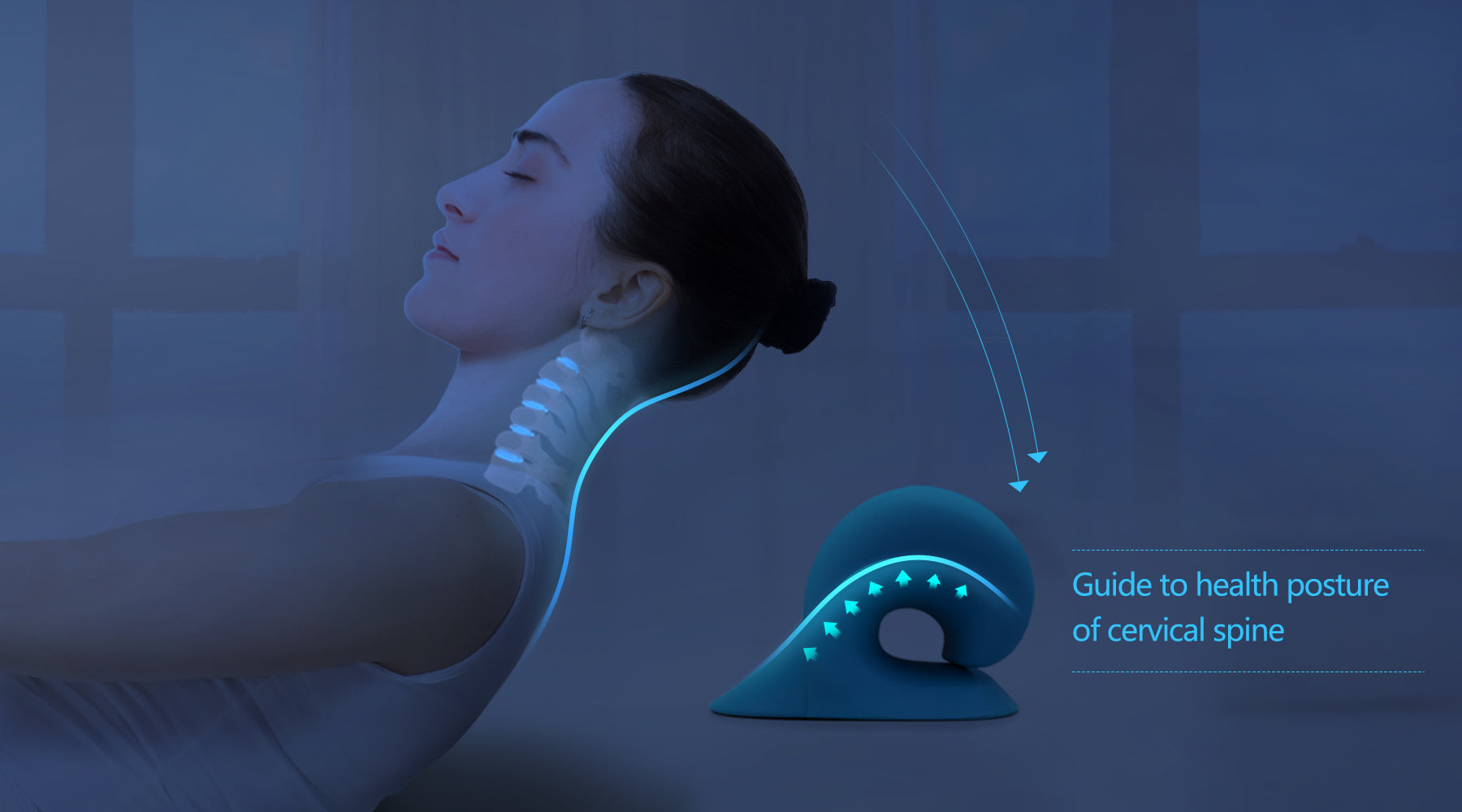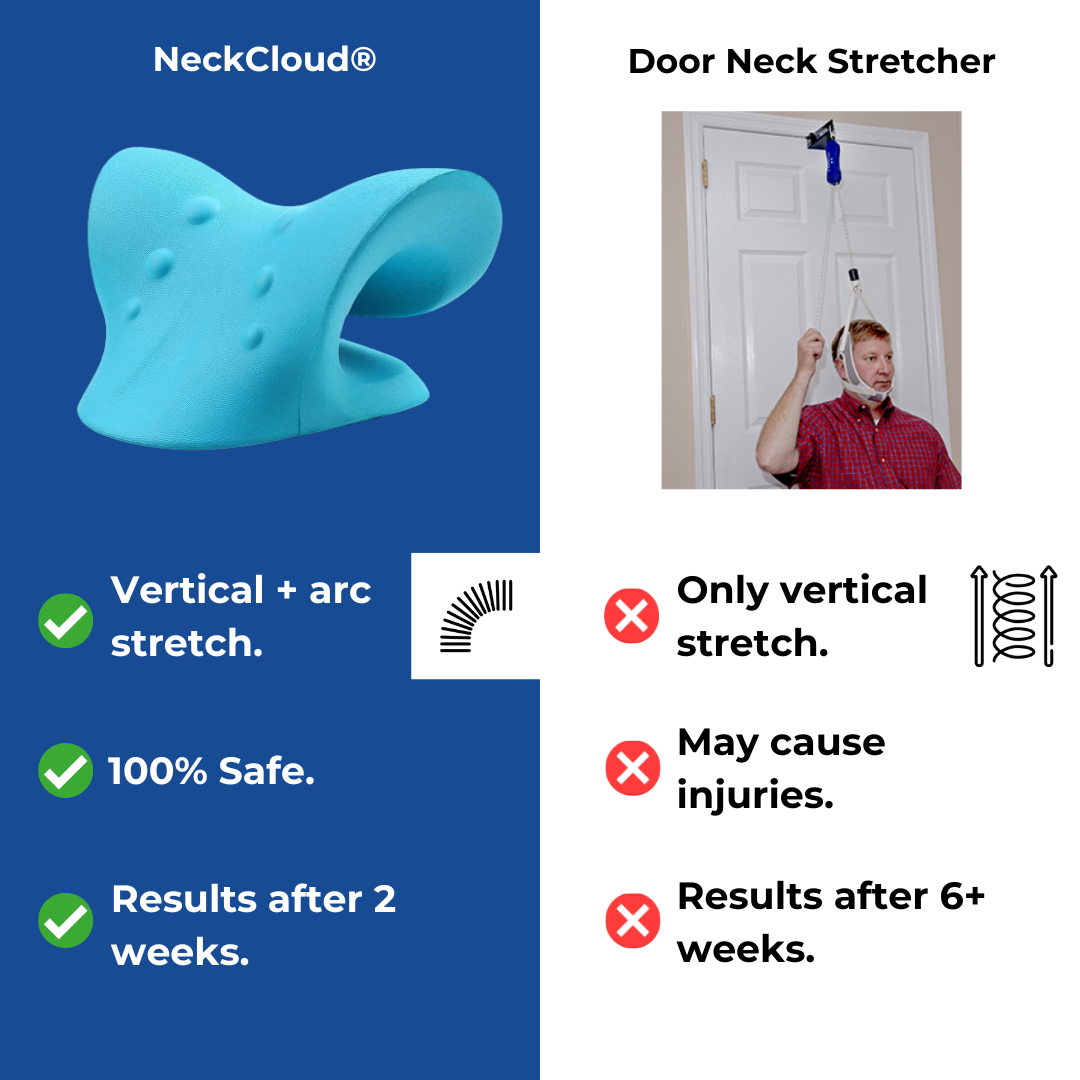Neck Cloud for Cervical Assistance: Kick Back and Alleviate Neck Discomfort
Neck Cloud for Cervical Assistance: Kick Back and Alleviate Neck Discomfort
Blog Article
The Influence of Tension on Neck Discomfort: Techniques for Lowering Tension and Pain
In today's fast-paced globe, it's no secret that anxiety has ended up being a widespread consider the onset and worsening of neck pain. The complex connection in between stress and anxiety and muscle tension typically leaves people looking for alleviation from the discomfort that takes place. By exploring targeted techniques focused on reducing tension and promoting relaxation, one can start to address the origin creates of neck pain and work in the direction of an extra well balanced state of wellness. Join us on a journey to decipher the effect of tension on neck pain and uncover reliable means to relieve pain and improve general lifestyle.
Understanding Stress-Related Neck Discomfort
Stress-related neck discomfort can materialize as stress, stiffness, or discomfort in the neck and shoulder location. The link between anxiety and neck pain exists in the body's physiological response to stress and anxiety, which can result in muscular tissue stress and rigidity in the neck muscular tissues.

Identifying Common Stress Areas
Frequently experienced by individuals under anxiety, stress areas in the body can offer useful understandings right into the physical manifestations of psychological stress. One typical stress location is the neck, where stress and anxiety typically materializes literally. Stress frustrations, stiff neck muscles, and restricted series of movement prevail signs and symptoms of stress-related neck stress. The shoulders are an additional common area where tension builds up. Anxiety can trigger the muscles in the shoulders to tighten, causing discomfort and pain. Additionally, the upper back is susceptible to tension build-up, especially in individuals who experience chronic tension. Poor position and extended resting can worsen stress in this location. The jaw is additionally an usual area for stress-related stress, as many individuals clinch their jaw or grind their teeth when worried. Recognizing these typical tension areas can help individuals recognize the physical signs of stress and anxiety and take steps to resolve them prior to they escalate into persistent discomfort or discomfort.
Implementing Leisure Methods
To properly handle stress-related stress in the body, carrying out relaxation strategies is vital. Relaxation strategies are useful tools for lowering neck pain brought on by stress. Deep breathing workouts can help soothe the mind and relax strained muscles in the neck and shoulders (neck cloud). Exercising mindfulness meditation can likewise be useful in alleviating anxiety and advertising relaxation. Dynamic muscular tissue leisure, where you methodically tense and afterwards loosen up different muscle teams, can release built-up stress in the neck location. Additionally, activities like yoga exercise and tai chi include both physical movement and leisure, making them effective techniques for lowering tension and neck discomfort. Taking routine breaks throughout the day to stretch and relax can stop muscle tightness and tension from accumulating. By integrating these leisure strategies right into your everyday routine, you can aid take care of stress degrees, minimize tension in the neck, and ease discomfort related to stress-induced neck pain.
Incorporating Self-Care Practices
Including self-care techniques is essential for maintaining general health and handling stress-related neck discomfort successfully. Taking part in routine physical activity, such as mild stretching workouts or yoga exercise, can aid reduce stress in the neck and shoulders. Practicing great posture throughout the day and taking frequent breaks from extended resting or display time can also protect against pressure on the neck muscular tissues.
Furthermore, prioritizing sufficient rest and developing a consistent rest regimen can add substantially to lowering anxiety levels and promoting leisure. Producing a relaxing bedtime regimen, such as reading a book or taking a cozy bathroom, can help prepare the mind and body for restful sleep. Additionally, keeping a balanced diet plan rich in nutrients and staying moisturized can sustain overall wellness and minimize inflammation that might worsen neck pain.
Integrating mindfulness practices, such as deep breathing exercises or meditation, can help manage tension and advertise relaxation. Taking time for oneself, taking part in pastimes, and setting borders to secure personal time are additionally vital aspects of self-care that can contribute to lowering anxiety and minimizing neck pain.
Seeking Specialist Help
Just how can people effectively attend to persistent neck discomfort that is affecting their life and health? Looking for expert assistance can be why not look here an important action in managing and reducing neck pain. Consulting with health care specialists such as chiropractic doctors, physical specialists, or orthopedic specialists can supply useful insights and customized treatment strategies. These experts can conduct complete evaluations to diagnose the underlying root go to my site causes of neck pain and recommend appropriate treatments.
Chiropractics physician concentrate on spine manipulation techniques to boost alignment and minimize tension in the neck area. Physiotherapists use targeted exercises and stretches to strengthen muscle mass, improve adaptability, and improve general neck feature. Orthopedic professionals can provide innovative clinical interventions such as shots or surgical choices for severe cases of neck pain.
Final Thought

Stress-related neck pain can manifest as stress, stiffness, or pain in the neck and shoulder location. The link in between anxiety and neck discomfort exists in the body's physiological reaction to stress, which can result in muscular tissue tension and tightness in the neck muscles. Tension frustrations, tight neck muscles, and limited variety of activity are common symptoms of stress-related neck stress. By incorporating these leisure strategies right into your daily routine, you can assist handle stress and anxiety levels, decrease tension in see the neck, and relieve pain connected with stress-induced neck discomfort.

Report this page